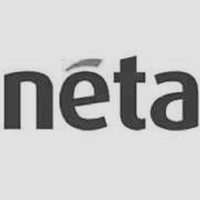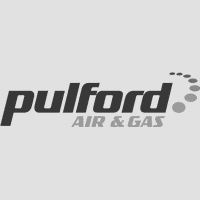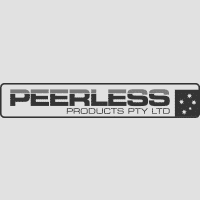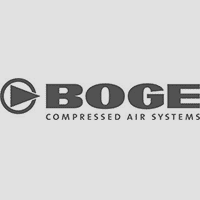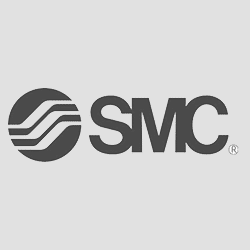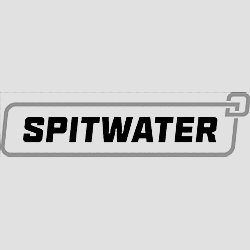Why Regular Maintenance Of Industrial Equipment Is Crucial For Longevity & Efficiency
Friday, May 9th, 2025Keeping industrial equipment in optimal condition isn’t just a best practice—it’s essential. Whether it’s powering a manufacturing floor or supporting mining operations, this machinery is at the heart of productivity. Yet, like any mechanical asset, industrial equipment demands consistent care to perform at its peak.
Skipping maintenance may seem like a cost-saving move in the short term, but it can result in costly downtime, reduced efficiency, and premature equipment failure. Let’s explore why routine maintenance is indispensable for those who rely on industrial equipment services.
Proactive Inspections Prevent Downtime Before It Starts
Unexpected machinery failure can bring an entire operation to a halt. That’s why proactive inspections are a cornerstone of good equipment management. A regular maintenance schedule enables early detection of minor issues before they escalate into full-scale breakdowns.
Some key preventative tasks include:
- Checking for signs of wear and tear on belts, gears, and bearings
- Monitoring fluid levels and ensuring seals are intact
- Verifying that sensors and control systems are responsive
- Tightening loose fittings or electrical connections
By catching these concerns early, businesses reduce the chance of production losses and emergency service callouts.
How Maintenance Enhances Overall Equipment Efficiency
When machines run smoothly, they consume less power, operate with greater precision, and complete tasks faster. Industrial equipment that hasn’t been cleaned, calibrated, or lubricated often struggles to perform, leading to slowdowns or inconsistencies in product output.
Routine maintenance supports peak performance through:
- Removing debris and buildup from mechanical parts
- Recalibrating sensors and instruments to maintain accuracy
- Lubricating moving components to reduce friction and heat
- Optimising airflow or fluid circulation in hydraulic systems
These small interventions accumulate into significant improvements in efficiency and cost-effectiveness.
Minimising Costly Emergency Repairs with Scheduled Servicing
Emergency breakdowns aren’t just inconvenient—they’re expensive. Whether it’s the cost of rushed parts, overtime labour, or lost production time, unplanned equipment repairs can seriously impact the bottom line.
By investing in scheduled servicing:
- Equipment failures are less likely to catch you off guard
- Part replacements can be timed before catastrophic damage occurs
- Budgets can be allocated more effectively without surprise expenses
- Service teams can plan visits during downtime, avoiding disruption
Preventive maintenance offers peace of mind. It’s a smarter, more budget-conscious alternative to the high costs and operational stress of reactive repairs.
The Link Between Safety Compliance & Equipment Servicing
Equipment malfunctioning doesn’t just affect productivity—it puts workers at risk. From hydraulic press failures to faulty wiring, neglected equipment can result in serious injury or property damage. Ensuring industrial gear is regularly serviced is fundamental to creating a safe work environment.
Maintenance contributes to safety by:
-
- Keeping machine guards and emergency shutoffs functional
- Preventing leaks, overheating, and electrical faults
- Ensuring compliance with occupational safety regulations
- Reducing the risk of fire or explosion in high-pressure systems
Safe and serviceable equipment protects your business from potential legal liabilities and insurance issues.
The Critical Role of Routine Maintenance in Preventing Downtime
Even minor equipment issues can escalate quickly without regular maintenance in high-output environments. Components such as coolant pumps, spindles or drive systems may gradually degrade, often without immediate signs of failure. When these issues go unnoticed due to deferred servicing, they can lead to unexpected breakdowns, production stoppages and missed deadlines.
Routine maintenance is vital in detecting early warning signs, such as temperature fluctuations, vibration anomalies or reduced fluid flow, that indicate potential problems. Addressing these concerns during scheduled checks extends equipment lifespan and ensures operational continuity. In precision-based industries, staying on top of maintenance isn’t optional—it’s essential for consistent performance and minimising costly interruptions.
Tailored Servicing Plans: One Size Doesn’t Fit All
Not all industrial machinery operates under the same conditions. A generator powering an outdoor worksite faces challenges different from those of an indoor conveyor system. A tailored maintenance approach delivers better results than a generic checklist.
Considerations for customised service schedules:
- Frequency of use: Equipment running continuously will need more frequent checks
- Environmental conditions: Dust, humidity, or extreme temperatures require specialised attention.
- Manufacturer guidelines: Some machines have specific servicing intervals or part life cycles.
- Load requirements: Heavier usage puts more strain on critical components.
Partnering with an experienced industrial equipment service provider ensures your maintenance program reflects your machinery’s actual wear, risk, and operational context, helping avoid unnecessary servicing while preventing critical oversights.
Boosting Asset Longevity Through Proper Care
Industrial equipment represents a significant capital investment. Protecting that investment through maintenance ensures smooth day-to-day operations and extends the asset’s serviceable life, delaying the need for expensive replacements.
Maintenance tasks that contribute to longevity include:
- Lubricating mechanical parts to reduce wear
- Replacing worn seals and gaskets to prevent leaks
- Performing diagnostic scans to uncover internal issues
- Keeping motors and electrical systems clean and free from dust
When equipment is properly maintained, it consistently performs at its designed capacity for a much longer period, delivering a greater return on investment, improving operational reliability, and supporting long-term business growth.
Investing in Maintenance is Investing in Business Continuity
Ultimately, maintenance isn’t just about the machinery but your entire operation. A single piece of equipment going offline can disrupt production schedules, affect supply chain commitments, and harm client relationships. Regular maintenance should be viewed as a strategic investment in business continuity.
With consistent servicing, businesses can:
- Avoid unplanned shutdowns that delay delivery timelines
- Reduce reliance on urgent technical support or part replacements
- Maintain a reputation for reliability among clients and suppliers
- Improve forecasting and resource planning
Ensuring your equipment is in top condition allows you to focus on what matters most—delivering results without disruption.
Keep Your Equipment in Peak Condition—Partner with Us Today
At Norosco, we understand how vital it is to maintain your equipment for long-term performance. From routine inspections to advanced industrial equipment repairs, our team is committed to helping you protect your investment and maintain your operation’s momentum. Get in touch with us today to book a consultation or learn more about our servicing capabilities.
Let us help you reduce downtime, increase efficiency, and support your equipment’s lifespan.
Posted in industrial equipment repair, industrial equipment service | Comments Off on Why Regular Maintenance Of Industrial Equipment Is Crucial For Longevity & Efficiency


